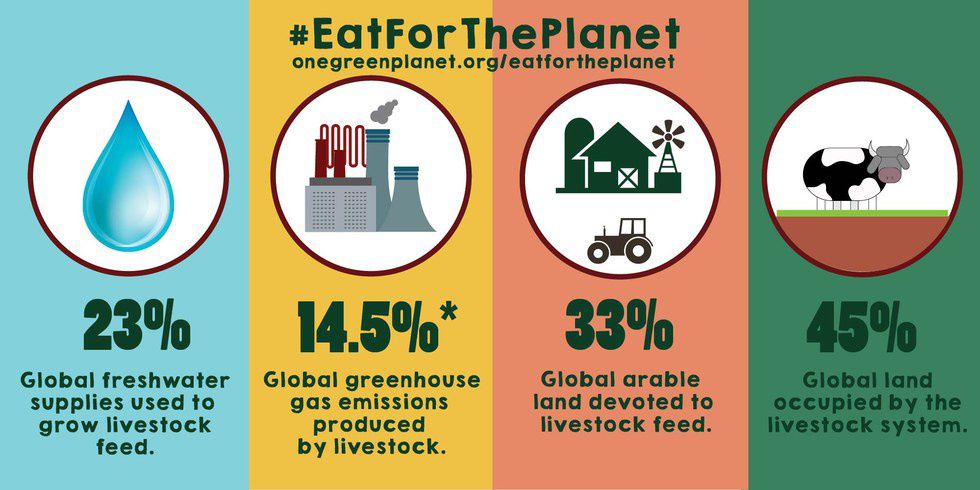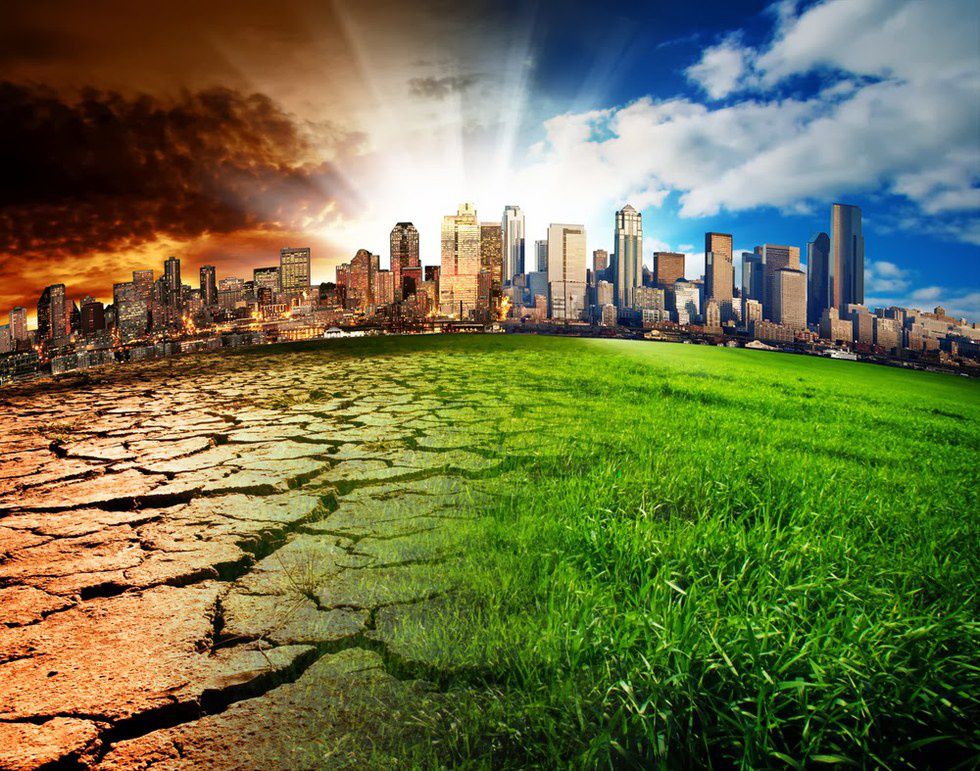The media coverage being given to the state of the Great Barrier Reef has brought the public's attention to the disruption and pollution that our current way of living has brought to our oceans, as well as our freshwater sources. The death of over 20 percent of the reef's coral and the remaining coral being 'bleached' due to unnaturally high water temperatures has begun to open people's eyes to some of the devastation we have brought to our oceans, lakes, and rivers, but there is so much more behind our changing climate that we aren't being told.
It has been accepted by the scientific community that climate change is a clear and present threat, but most will blame this dramatic change in climate on industrialization, saying factories and their waste are the leading causes. It is true that these are harmful to the environment, sending over 180 million tons of toxic waste to the ocean yearly. Overpopulation is also a threat, with people sending 120 million tons of waste to landfills each year, which pollutes the runoff that goes into our water, with numbers constantly on the rise. Now, what if I told you that there is something out there that produces approximately 130 times more waste than all of humanity combined?
Factory farms raising animals for slaughter do exactly that.
In order to maintain the massive, overcrowded facilities used to raise these animals, there are 'flushing systems' that use and contaminate so much water (roughly 150 gallons of water per cow, daily) that farms often form open-air lagoons for the waste that are not contained enough to prevent the contaminated water from leaking in public water systems. In fact, some farmers will regularly drain their cesspools, filled with waste, fertilizers, growth hormones, pesticides, by spraying some of the water from them into neighboring lands. This makes it all too easy for waste to enter public water sources and create a sickening risk to public health.
Not only is the water that we do have being contaminated by animal agriculture, it is also being wasted on an industry that really ought to be seen for the cruel and unnecessary thing that it is. Believe it or not, clean water is not an endless source. It is something that we take for granted, and are currently running out of globally, including right here in America. More than 70% of the Earth's usable water is put into animal agriculture. You will find endless sources from leading environmental organizations recommending that you save water by taking shorter showers, checking your home for leaks regularly, turning off the faucet while brushing your teeth, etc. And yes, you can save multiple gallons of water a day by making these adjustments, but it is clear that animal agriculture uses so much of the water that we ought to be conserving, taking shorter showers could never make up for the loss from this. It can't even come close to the 2,400 gallons of water that are lost on that pound of ground beef you just bought at the grocery store. You could make all of these simple changes and still be contributing to the waste and contamination of thousands of gallons of water each day. It takes 4,000 gallons of water to feed the average meat-eater each day; compare this to the 1,200 it takes to feed a vegetarian or even the mere 300 gallons someone on a vegan diet uses each day. If everyone in America went vegan, we would save something around one billion gallons of water per day. This isn't entirely possible of course, because of the current state of public healthcare and poverty levels (vegetables and supplements are expensive), but even if everyone who had the ability to make this change did, it would cut down water usage significantly. I know that as an individual, it's easy to think, "One burger couldn't do that much damage." but imagine the other 300,000 people in America who do have access to food thinking the same way. It adds up.
If you're still with me, imagine a world where no changes are made. Imagine the climate continues to be unstable, our atmosphere continues to weaken, the demand for meat and the precious resources used to prepare it continue to rise with the population, our oceans and freshwater sources continue to be devastated by pollution until, what? It all solves itself? The resources we have on Earth will run out. Where will we be without enough clean drinking water for our people? Imagine cities falling to chaos and riots as people kill each other over water and even food, because if we run out of water, how will we raise crops or animals to be eaten? Imagine the population of Earth being reduced by billions, leaving only the luckier, wealthier half of the world alive. Imagine, even after this, the people who have survived struggling with filthy, unbreathable air. If there is no water to grow crops then surely other plant-life will suffer as well. How will the air be oxygenated? How will people breathe?
Certainly, there are scientific advancements that could be made to help with the processing of the waste produced by animal agriculture and other sources of water and air pollution, but they won't happen fast enough. We are running out of resources at rates significantly higher than we can sustain. And what is there for us to do? In times like these, we should be able to look to our leaders, the people who are meant to protect public health and well-being, the government. It is the government's primary purpose to protect its citizens. We need government regulations on the animal agriculture industry. The thing is; these already exist, but all too often they are not being followed. Some government officials are making attempts to amend this, but unfortunately, it is the highest ranking government officials who work with the corporations heading the animal agriculture industry. In part, they are higher ranking due to their involvement, getting money from these bloated corporations in exchange for allowing them to fail to meet the standards that have been set in place to protect public health, without penalty. Do you ever hear people say the government is corrupt and wonder just how deep it goes? Well, it goes so deep, it's in our food. It's in our guts.
Now, imagine a world where changes are made. Government regulates the animal agriculture industry and keeps us alive long enough to make the scientific and technological advancements necessary to keep up with our growing population. Imagine our oceans, lakes, and rivers are slowly recovered, and made clean enough for marine life to thrive. In the process of regulating animal agriculture, we would also significantly reduce the amount of methane production, and therefore have cleaner air and be able to give the atmosphere a chance to heal. People would eat healthier foods that are much less genetically modified than what we are eating now, which means less illness. This means much less money being spent on health care and pharmaceuticals (another thing the government doesn't want). In this new world, you have a government that you can trust has your best interest in their heart and in their spirit. You can see it in their eyes just as clearly as you see it in their actions. Imagine a green planet, where humans live in harmony with the nature that came before them. Imagine, in the end, being able to say that humanity left the Earth better than they found it. Imagine the future.
There is a lot of work to be done to get to this place of safety and livelihood. Right now, the most we can do is begin slowly switching to a vegan diet, but at some point, we will have to come together. If there are enough people demanding the protection of public health and well being - enough people demanding that our resources be protected and maintained for the generations to come, they will have to listen. It is up to us to make them listen before we reach a point of no return, which scientist are predicting may come as soon as the year 2050. No matter what, there will soon come a time when we have no choice but to stop ignoring the death of Earth and choose the fate of our kind.
The time is now.


























